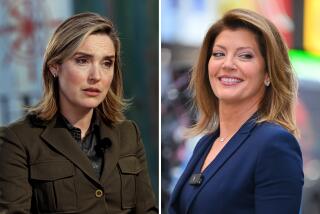Debate Over the Presidential Debates
- Share via
Although the Bush camp has agreed to two televised debates, these will probably not be genuine debates at all, but extended press conferences, such as we have had before by two presidential candidates, starting with the Kennedy-Nixon TV confrontations in 1960.
The first public exposure of the idea of presidential TV debates was made by Drew Pearson, in his radio broadcast of Aug. 3, 1952. During that broadcast, he proposed that Adlai Stevenson and Gen. Dwight Eisenhower debate in the manner of the famous Lincoln-Douglas meetings of 1858.
I was involved in this Pearson broadcast because on July 30, four days after Stevenson was nominated, I had written to Pearson asking him to urge the two candidates to debate on TV as Lincoln and Douglas did on the stump. In a letter dated Aug. 6, Pearson thanked me for making the debate suggestion and sent me a copy of his broadcast. About that time, Sen. Blair Moody, following the broadcast, challenged Eisenhower on behalf of the Stevenson people, but the challenge was ignored.
In September, 1982, Dorothy S. Ridings, then president of the League of Women Voters, wrote me that in 1980, the League had proposed the Carter and Reagan debates without a panel of interrogators, just a moderator, but neither man would agree to this.
According to the League’s booklet, The Presidential Debates: Behind the Scenes: “. . . With the stakes so high, neither was willing to take his chances on such a free-flowing format, designed to produce the freest possible exchange of campaign issues.”
In a recent column in The Times, David S. Broder proposed actual debates with no interrogators. I have written to the Dukakis campaign in Boston urging the governor to challenge Bush to such real debates.
MORT R. LEWIS
Marina del Rey
More to Read
Get the L.A. Times Politics newsletter
Deeply reported insights into legislation, politics and policy from Sacramento, Washington and beyond. In your inbox twice per week.
You may occasionally receive promotional content from the Los Angeles Times.










